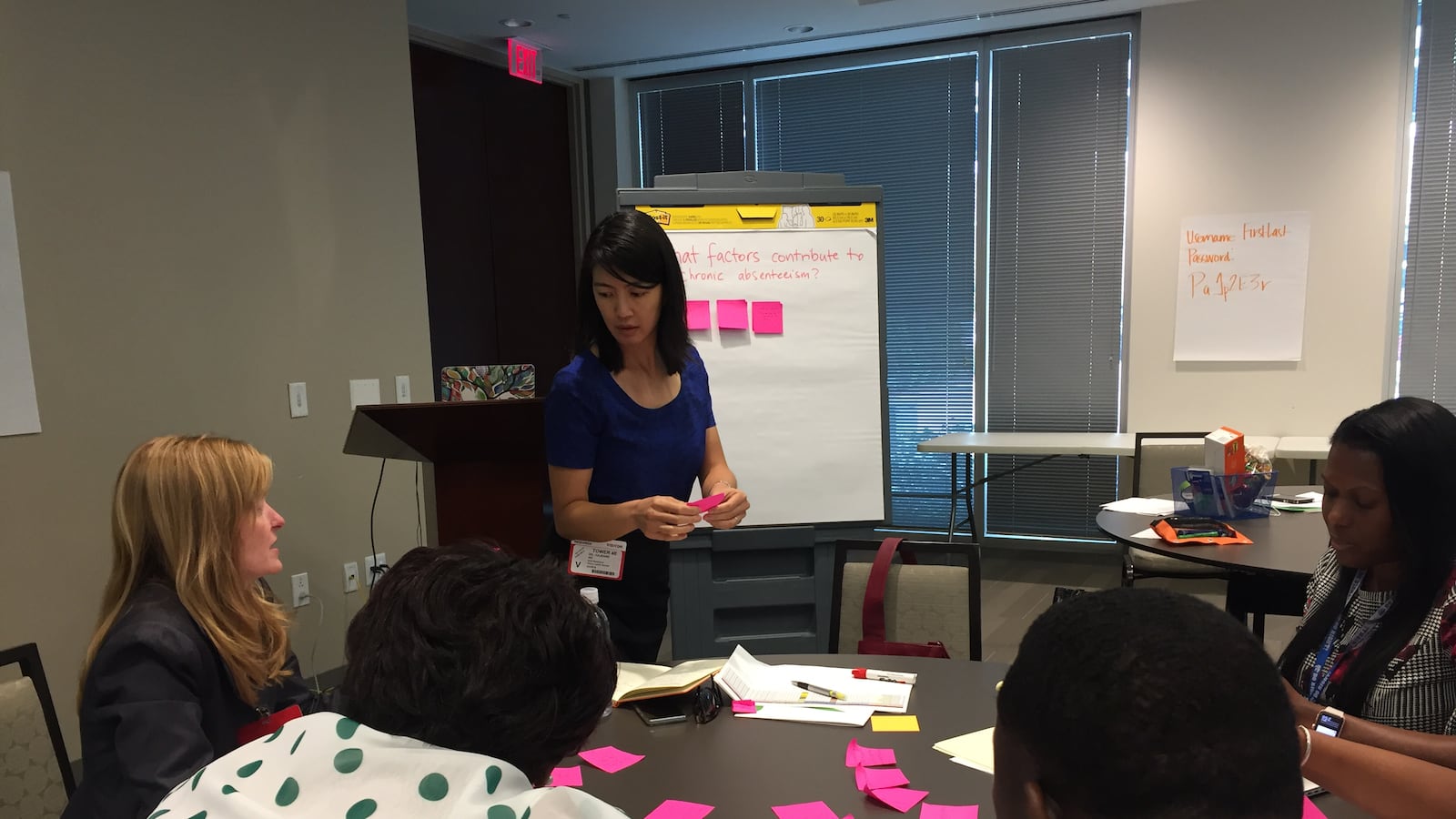Why are some students consistently absent?
That’s the question more than 30 local school leaders were trying to answer when they gathered last week around tables in a sunlit conference room in Memphis.
Barton Thorne, the principal at Cordova High School, had more than a dozen reasons written down on sticky notes: homelessness, suspensions, and transportation, among them.
Solving problems like chronic absenteeism and disparities in graduation rates and academic progress is the goal of the nearly $1 million philanthropic dollars earmarked for 15 Shelby County schools, including Cordova High. The money will put data analysts inside select middle and high schools, with the intent of helping school leaders make data-driven decisions.
“It’s like principals get [test] results at the end of the year, and they say, ‘Ok, this went well and this went poorly, now on to the next year,’” said Mark Sturgis, executive director of Seeding Success, a Memphis non-profit that led last week’s training and overseeing the data effort. “We should actually figure out why something went well and build on that data throughout the year.”
The idea behind the project is to track current eighth- and ninth-graders at the schools over a 24-month period. The data analysts will work with principals and assistant principals to come up with factors that inhibit student success, such as being chronically out-of-school due to transportation issues. Together, they will come up with a plan to combat the issue, and then they will track the students to see if the plan works.
“The day-to-day work of school leaders is most often about solving the problems of today,” Sturgis said. “The bigger strategy work is secondary, if it happens at all. We’re not bringing in new interventions to the schools, but we are bringing in people to help schools do that long-term strategy work.”
Seeding Success, which is part of the StriveTogether national network of cradle-to-career collective impact organizations, is placing five data analysts in the schools. The schools were selected by Shelby County Schools and grouped by feeder pattern or location. Analysts will serve:
- Germantown High School, Germantown Middle School, Avon Lenox High School
- Central High School, White Station High School, Bellevue Middle School
- Kingsbury High School, Bolton High School,Kingsbury Middle School
- Overton High School, Ridgeway High School, Ridgeway Middle School
- Highland Oaks Middle School, Southwind High School, Cordova High School
More than half a million in funding is coming from the Bill and Melinda Gates Foundation, as part of a larger $92 million pledge to back various educational initiatives, and $300,000 is coming from International Paper, a Memphis-based Fortune 500 company. (Gates is a funder of Chalkbeat.)
International Paper will also be providing technical support for the schools and data team, Sturgis said, adding that Shelby County Schools has a new data system, but more support is needed to help schools best use it.
Felicia Everson-Tuggle, director of instructional leadership at Shelby County Schools, is heading up the partnership from the district side. She told the principals and assistant principals gathered last week that the goal of the project is to work with Seeding Success to monitor progress toward school goals throughout the year.

“What are the next goals for improvement? What needs to be adjusted or changed?” Everson-Tuggle asked the group that had gathered for the training. “We don’t want this to just be a check. We want to make sure all of our schools are high-performing next year.”
If this partnership goes well, the hope is to expand it to additional Shelby County schools, Seeding Success leaders said.
Courtney Robinson, who is managing the project for Seeding Success, echoed Everson-Tuggle by telling the group that this partnership will only work with buy-in from school leaders.
“We really want [the data analysts] to be an Aspirin, not a headache,” Robinson said during the meeting. “They will support you all around the data piece and think with you about factors that affect you all every day.”

